International Women's Day 2022: Members of Vancouver's arts and culture community mark a movement
From dance and theatre to music and culinary arts, local leaders reflect on the March 8 global event that celebrates women’s achievement and forges equality
Joleen Alicia Miskinahk (Mitton). Dress by Sho Sho Esquiro. Photo by Patrick Shannon
INTERNATIONAL WOMEN’S DAY envisions a world free of discrimination and bias, one that’s equitable and inclusive.
In marking the 2022 event, Stir asked a few members of the local arts and culture community—just a small handful of the countless extraordinary women working in dance, music, theatre, culinary arts, and beyond—what March 8 means to them and what needs to happen to further amplify the voices of women in their fields. We share their reflections here, in their own words.
Mary-Louise Albert.
Mary-Louise Albert
Artistic and executive director, BC Movement Arts Society
As warming as it is to take a moment to celebrate 50 percent of our global population, unfortunately, International Women's Day still brings to mind that women—in particular young women and those who identify as women—are very much still battling so many societal obstacles that can prohibit the ability to thrive professionally and personally. The term backlash also comes to mind.
As for dance, a healthy dance environment for women will make for a thriving field for everyone. Holding anyone back from their potential stunts progress and well-being for all. Things that need to change in the field of dance to help women exist within and outside the dance field and will ultimately help everyone in the field. This includes more childcare support, access to mental-health care, raising wages, changing labour laws to protect freelance workers, and more.
There needs to be more support for dancers who become mothers, fathers, and caregivers. If you don’t already have a strong support system and financial stability, having a child and staying in the field is extremely hard, and in particular, many performing women leave dance for more financially stable work. People shouldn’t have to choose between a career in dance and raising a family. Despite more female leadership in recent years, women and non-binary choreographers are still a minority. So, despite women making up a majority of the field, women are still underrepresented in leadership and in choreography—positions that tend to be the better paid ones and positions that allow for the continuation of women in the field beyond performing.
Andrea Alrdige.
Andrea Alridge
Head chef, Osteria Savio Volpe
International women's day is something that should be celebrated by all. For me, it's a day of reflection, for the rest of the world to take a second and remember just how far we have come and how much further we will all go when we work toward treating each other as equals.
My biggest draw to pursuing culinary arts was always being surrounded by food at a young age. Being raised in a Filipino and Jamaican household was a true treat. I never realized I wanted to become a chef until I graduated high school. I was well on my way to furthering my career in computer sciences and graphic design until it all hit me one day. I knew I couldn't sit at a desk for the rest of my life. I needed to be hands-on and constantly moving. So I dropped everything after high school and told my parents that I was going to culinary school. The restaurant industry has been and is still quite a male-dominated realm. Women are making their stamp in it and starting to make a change, but this is not something that women alone must do to be heard and accepted. As the world progresses, so do people. Once we can change our mindsets, stereotypes, and beliefs of people in the industry, only then can everyone's voices be heard.
Joan Blackman
Joan Blackman
Artistic director, Vetta Chamber Music
When I was first starting out as a musician, I never gave women’s issues a thought. I was getting tons of work and felt lucky to be a part of Vancouver’s musical community. I ended up having a leadership role, or an associate leadership role, in the Vancouver Symphony. As I got older and more confident about expressing myself artistically and in group settings, I found I wanted more say, and decided I would make my own decisions with my own chamber series, Vetta Chamber Music. Taking over Vetta in 2007 allowed me to start taking ownership of my musicianship in a new way, and I was able to grow in a new way. I was lucky to have the opportunity to make my own decisions, and it came at a time in my life when I was looking to grow that way.
Over the years, I have veered more toward hiring women and also mentoring young women just starting out in the professional world. I read somewhere that school-aged girls tend to absorb the idea that they have to be perfect, i.e. not make mistakes, whereas boys are encouraged to take risks. True or not, many young women are afraid to step into the limelight or to make bold moves. I certainly was, so I am making it my mission to encourage a little bad-ass attitude!
One positive thing women can learn from experience is resilience—bouncing back, not taking no for an answer. I had resilience in mind when I was initially planning Vetta’s upcoming concert, Bassoon!. A few years ago I was enjoying a Turning Point Ensemble concert and heard and saw Ingrid Chiang in action on the bassoon. Talk about bad-ass! She oozed confidence and sass and played like she meant it. She is a lady who has survived breast cancer and been a single mom. Michelle Mares is another cancer survivor, mom, and brilliant pianist to boot. I guess the only piece of this upcoming program that doesn’t fit with International Women’s Day is the date—we are a few days late.
Barbara Bourget. Photo by Chris Randle
Barbara Bourget
Artistic director of Kokoro Dance; co-producer with Jay Hirabayashi of the Vancouver International Dance Festival, now in its 22nd season
For me, International Women's Day should be every day. Women are strong and passionate in their work. Loving and nurturing with their partners, children, parents, friends and all those who might need their strength. I feel blessed to have met and collaborated with so many wonderfully creative women in my artistic practice. Playwrights, dancers, choreographers, directors, actors, singers, composers and the list could go on.
I don't think there is any one thing that can immediately change the hierarchical structure of society. I think we as women just have to keep challenging and chipping away at that structure by creating powerful human work that speaks to all people.
Katharine Carol.
Katharine Carol
Artistic and executive director, Vancouver International Children's Festival
International Women’s Day creates a day of reflection, action, acknowledgement, and recognition for all that women, including those who identify as women, contribute to the world. It is important for women’s voices to be raised and amplified recognizing that we still have much to overcome in today's society. It is a day l take stock of where we are, what we have changed, and what is still needed to create change.
In terms of amplifying the voices of women in the arts we still fight to be heard, and although we are seeing more women take on leadership roles we need to see more IBPOC women in leadership roles, both within the creative and administrative arena’s.
International Women’s Day provides us with a day to stand up and say: ‘We are here, we will be heard,’ and for those of us, like me, who are older, to say ‘l will continue to fight to create an equitable world for all women so younger women have better opportunities and richer lives.
Nancy Cottingham Powell.
Nancy Cottingham Powell
Executive director, North Van Arts
I’m a tail-end Baby Boomer who grew up in the 60s and 70s and considers myself very lucky to have had so many brave women pave the way for change so I could choose to have a career and a family. I know this concept seems normal now, as we have come so far from the norms of the 50s version of “a woman’s place is in the home'', but we still have so far to go to reach true equality. I’m a great believer in balance; I consider myself a centralist. I think having balance between yin and yang influences in our communities is essential to having a productive, creative, equitable society. So, what does International Women’s Day mean to me? It’s a day to celebrate the feminine contribution to our society, a moment to recognize what women have achieved and celebrate our point of view, as nurturers, collaborators, and empathizers. The world needs these traits more than ever.
I work as an arts administrator. There are a lot of women working in the arts and culture sector. I think a big reason for that is the job allows us to use our skills on our terms, not fitting into a male-centric construct, but creating community utilizing those skills as a nurturer, collaborator, and empathizer. It’s the nature of the arts. We do have a voice as women and we are heard, so I feel very lucky. I would like to see more women arts leaders brought into wider community forums to bring that creative lens to play in important community decisions. I think a contributing factor as to why there are so many women in the arts compared to men is partly because men won’t accept the rate of pay that exists in our sector. Compared to the social-service sector that does similar community-building work, we are grossly underpaid for what we do. A solution is to put more funding into the arts to help elevate the sector’s salary rates, benefiting everyone who is working in the sector, men and women alike, allowing these talented people to live a decent life and to support community through their powerful work. Our sector also needs to work on gender pay inequities so that we have true parity moving forward.
At North Van Arts, where I work, we have a very interesting exhibition running at CityScape Community ArtSpace during International Women’s Day. I wanted to go on a Space Walk but I had Nothing to Wear is an exhibition by five female artists who are examining the androcentric world in which we live through the lens of space, celebrating the achievements of women in science and subtly pointing to the barriers women still face in space exploration and beyond. These artists have all confronted these issues and their work addresses the limitations women face in a world built by men. In this exhibition, they focus on the importance of the work of women, the long silence under which it has been hidden, and our role in breaking that silence. It is both a celebration and a critical look at where we have come from and where we still have to go as a society for women to truly become partners in the exploration of the cosmos, and the culture in which we live and work. As I said at the beginning, we have come a long way but there is still a long way to go to achieve that wonderful balance in our society.
Morna Edmundson.
Morna Edmundson
Artistic director, Elektra Women's Choir
International Women's Day gives us a chance to continue to move the dial toward full visibility of the work of women and those who identify as women in classical music, one of the art forms that has lagged woefully behind. In past seasons, Elektra has featured works by women composers and, of course, every time we step into a performance space in person or online, we are making a statement of what is possible. Lots has improved in recent decades as a result of countless, proactive actions by artists in every field. In a rapidly-changing world, IWD reminds us that there is still much to be done.
Nihal Elwan (third from right, in red) with some of the women from Tayybeh.
Nihal Elwan
Founder, Tayybeh, a women-run social enterprise that supports newcomer Syrian women chefs through showcasing their traditional food
International Women's Day is meaningful because it is a day to pause, reflect, and take stock of the incredible perseverance, resiliency, power, and creativity of women. We have come a long way and have had to face a myriad of challenges, regardless of where we are on the globe, to be where we are today. This is a day to acknowledge how far we have come as women in the world and how we can continue to grow. It is also a reminder that there is still so much work to do to support and uplift other women around the world.
For Tayybeh, it is a day where we renew our commitment to empower newcomer women in Canada. Every year, on this day, we actively support an initiative, project, charity, or organization that stands up for women. This year, a portion of our sales on International Women's Day will go to Nisa Homes BC, an organization that runs transitional homes for women and children escaping domestic abuse and homelessness.
We need to acknowledge and celebrate the achievements of women in all professions, vocations, and various facets of life. In fact, we need to do double the effort to celebrate women because of the numerous challenges we face that are unique to us. From having to juggle motherhood with employment, facing various social pressures and expectations to look a certain way or perform a certain way, these are not challenges men have to deal with, and more often than not they are unaware of these challenges as they aren't even part of their day to day existence. For women it is different. The onus is on us women to transcend these pressures and expectations and help other women do that on International Women's day and every day.
Alexis Fletcher. Photo by Michael Slobodian
Alexis Fletcher
Choreographer and performer of contemporary dance; co-artistic director of The Dance Deck with Sylvain Senez
To me, International Women’s Day is a celebration of the sacred feminine, and a way of honouring the ideal of balance between the energies of feminine and masculine, yin and yang, moon and sun, that we find in nature and which we humans can learn from and seek out both globally and personally. This day helps me honour my female ancestors and acknowledge my privilege to be born into this time and place, where I can thrive and benefit from their trailblazing. This day upholds my sisters worldwide in past and in present who endure violence, repression, and lack of access to their fundamental rights.
I imagine there are so many ways of experiencing this energy I am calling the sacred feminine. She is in all of us no matter our gender identity or biology. I see her showing up when we follow our guts, our instinct, our intuition. She is that which is connected to the earth, to the belly, to insight, and she is the creative spark of possibility. She is the darker, deeper pull that is underneath the surface of things. When people create spaces where they and others feel safe, welcomed, and upheld to self-actualize and grow into their highest selves, she is present there. When we dare to gather our communities together and celebrate human beings as multi-faceted and nuanced individuals; when we do this even as the world is telling us to focus on polarized, black and white belief systems, she is present. She nurtures and brings beings together, warding off isolation and feelings of futility. She is soft yet fierce. She is the mother energy.
When we as artists create not from a desire to please or to follow the rules, but from a desire to share a genuine part of ourselves with the world, this energy helps us manifest. When artists ask what is beyond the status quo and seek ways of being that are kinder, braver, and more profound, her energy is present. This energy reminds me to make art as an act of hope and rebellion.
In our chaotic global circumstances, we are using her energy in astute ways when we seek ethical discernment amidst multiple perspectives and the discomfort of paradox. She helps our nervous systems to self-regulate and settle inside a world spinning ever faster, so that we may connect with our sense of purpose and have the courage to continue. In the spirit of the sacred feminine I hope we can all hold each other a little tighter today—we sure need it. And I wish everyone a fulfilling and reflective International Women’s Day.
Leila Getz.
Leila Getz
Founder and artistic director of Vancouver Recital Society
I think that every day should be International Women’s Day. I’m glad to say that in my field—the field of classical music—women are recognized. Many key positions are held by women. One of the top jobs in the US, the CEO of the New York Philharmonic Orchestra, is held by a woman, Deborah Borda. I will admit that in the field of conducting women are underrepresented, but I hope we see that change in the coming years because of women like Marin Alsop and Mirga Gražinytė-Tyla.
It’s up to us as women to mentor, promote, and support one another wherever possible. If change is to come, it will have to come from us.
Emmy Lee Wall.
Emmy Lee Wall
Executive director, Capture Photography Festival
International Women's Day is both an opportunity to celebrate the many significant achievements of women and a moment to take pause and consider ways we might continue to offer opportunities and uplift women. To see further growth for women in the arts, it's important to offer them opportunities in leadership roles and embrace diverse management and leadership styles. By giving women increased responsibility and decision-making authority, they will have the ability to provide a platform for the next generation.
Suzie LeBlanc.
Suzie LeBlanc
Artistic and executive director of Early Music Vancouver
March 8 reminds us to celebrate women, their contributions, what they did, and how they did it. If you look at history, you see that so many women worked and strived in the midst of adversity and in climates that were against their fulfillment. In literature of the 15th century, we find texts that even question whether women had souls. My specialty is music from the Renaissance and Baroque periods, and I love to celebrate the lives and works of women who have been left out of music-history books though many of them flourished and were highly successful and celebrated during their lives. It’s exciting to bring their voices back.
Jessica Mann Gutteridge. Photo by Tallulah
Jessica Mann Gutteridge
Artistic managing director, The Chutzpah! Festival and the Norman & Annette Rothstein Theatre
For me, International Women's Day is an opportunity to reflect on the power of sisterhood and kinship with other women and non-binary and femme-identifying folk. Helping, centering, and mentoring each other to be as bold and creative as possible is the best way I can think of to raise us all up and bring our voices forward in a spirit of collaboration.
Joleen Alicia Miskinahk (Mitton).
Joleen Alicia Miskinahk (Mitton)
Producer, community support worker, founder of Vancouver Indigenous Fashion Week, and co-founder of Supernaturals Modelling
International Women’s Day means strength to me; it celebrates past and future generations of strong women. My matriarchs who have gone through intense training, intergenerational trauma, and sacrifice to get me here are a triumph. My fields are fashion, art, film, and sport, and I am always trying to celebrate the women in my life, whether it is Vancouver Indigenous Fashion Week, Supernatural, or All My Relations (AMR) women's basketball team.
Bringing Indigenous representation and safe spaces to the forefront has always been my goal for this city. Nehiyaw iskwew means Cree Woman; I am accountable to and have responsibilities in upholding certain teachings passed on to me. I always think of my kokum [grandmother] or my mother and the battles they had to go through, so when you ask what needs to change, I would say everything, and I’m working towards that.
Esther Rausenberg.
Esther Rausenberg
Artistic and executive director, Eastside Arts Society located in the Eastside Arts District
This day is vital in respect to advancing and putting a spotlight on women’s rights. As a society, we are a long way from “there”. This includes balancing the inequities with respect to wages, opportunities, health care, the arts… The list is a long one. I have witnessed changes for the better over the years, and there is hope for continued advancement worldwide. Still, I am still greatly disturbed by the number of women who are attacked or murdered each year, particularly Indigenous women and women of colour. These casualties of misogyny and violence are clear indicators that women’s lives are still not valued and respected as they should be.
Women in the visual arts are still greatly underrepresented. Many of the “medium(s)” women might use such as embroidery, textiles, and the like are still viewed or dismissed as “women’s art and/or craft.” There is an urgent need for the advancement of gender representation in the arts. Progress can be achieved through increasing opportunities for solo exhibitions for women artists and increasing the acquisition of art made by women in regional and national collections.
Although it is better to have one Women’s Day than no day at all to acknowledge these concerns, this might suggest that for the rest of the year, society can revert to the “status quo”. It can’t. The striving for equality for women should be uppermost in people’s minds and behaviour throughout the year. “We’ve come a long way baby,” but we’re not there yet.
Heather Redfern.
Heather Redfern
Executive director, The Cultch
IWD is about solidarity. It is about feeling the connection between female-identifying people from all places, backgrounds, and races. It is a moment to say a prayer for the sisters who have been maimed or died violently, it is a time to remember our responsibility to create change for the sisters who are here and will come after us and to pledge to work for their futures.
The arts urgently need resources to support women who are mothers. They need financial support for childcare. People working in the arts are generally not well paid. They need childcare that fits into schedules that are not nine-to-five. They need longer rehearsal periods so they can have both a professional and a family life. They need support when their children are sick and they need to continue to work.
For me IWD is inextricably linked to the Montreal massacre in December of 1989. At that time I lived in a feminist co-op, I had a five-year-old daughter and was pregnant with my second child. I had been a student in the same area of Montreal just a few years earlier. The massacre broke me, then made me stronger and more determined to create a nonviolent future for women.
Jessica Schneider.
Jessica Schneider
Executive director, Massey Theatre Society/Anvil Theatre
On this day, I allow myself to really take stock of the echoes of matriarchal histories. I feel women’s histories in my blood and I validate it in my leadership, creativity, ingenuity, determination, and resilience. I validate it in the women around me, in my daughter’s emerging power and its resonance in my son’s bones as he wrestles with those same dynamics through his male perspective.
I recommit myself to recognizing these inherited qualities in myself and to supporting other women in the ways I am able to.
Women need an extraordinary commitment to job security and advancement from employers in our sector. We shoulder a tremendous load in the creative sector. We are simply all over it! We need to be able to live full lives in the arts whatever our family makeup is. Extra care must be taken to balance the fact women do the majority of support work in the sector while men more easily advance into leadership roles (and the majority of artistic opportunities).
Every year, when programming, I make a real effort to find women to present. Nearly all touring artists are male and it takes a conscious commitment to book women for the stages. The women have smaller tours in smaller venues and command lower fees. We must all make this effort and our audiences must take note and attend women’s works.
Donna Spencer.
Donna Spencer
Artistic producer, Firehall Arts Centre
International Women’s Day always serves as a reminder for me of how the world has moved forward in a positive way for many women and how it has not moved at all for so many and, in some cases around the world, has regressed. It also serves to remind me of how much further movement is needed to create a fully balanced world ecology for women and those who identify as such in order to create a world where special days such as this would not be necessary and every day would be celebrated for its equality and balanced approach.
Within the cultural sector, thankfully more and more women are leading artistic institutions, more women are writing and creating; however, in many cases, they are still contributing more time and energy to childcare and household management without recognition and often end up sacrificing aspects of their careers because of this. Times are changing, but equality in pay for women in management positions still lags behind that of what male counterparts receive, and deference and acknowledgement seem to still be more readily given to male artists and artistic/management leaders by boards of directors and society itself.
Lara Victoria.
Lara Victoria
Certified Specialist of Wine; Wine & Spirit Education Trust (WSET)-certified educator; founder and CEO of Cru Classe Hospitality Corp.;principal and creative director of Lara Victoria Lifestyles
Assigning March 8 as International Women’s Day does not mean it is the only day of the year that women’s wellbeing is a priority. Women’s rights and well-being are a universal responsibility that has no expiry date. As such, it needs recognition every day. However, having an International Women’s Day serves like an annual reminder to assess how effective our efforts have been in the course of a year, to move the dial in support of women’s rights; their needs; their equitable social, academic, and professional opportunities; as well as their health and well-being. Having a dedicated date celebrated globally on an annual basis gives its purpose a sense of universal perpetuity, which is what women and those who identify as women deserve. After a history of widespread subjugation, injustice, violence, exploitation, and neglect that women have endured across time, geographies, cultures and socio-economic constructs, it’s time we have a day that reminds the world that women matter.
An article published by Annick Darioly (2019) notes that while women occupied 55 percent of the workforce in hospitality, most of senior positions in the trade are still male. For example, only 11 percent of leadership positions in hotel companies are held by women. And this report was published before the pandemic! The point is, even though more than half of the hospitality workforce comprises women, why is it that they represent a minority among this field’s senior leadership?
I work with food (pairings, food styling, and food photography) and beverage alcohol (wines, spirits, and sake). As a WSET Certified Educator I am encouraged to see the number of women get qualified in wines and spirits. It is also noteworthy to see more female sommeliers nowadays. Yet one cannot help but notice that most of the top jobs are still in the hands of men, who often are a lot less qualified than their female “subordinates”. If we want to raise, or even maintain, the standard of our local wine and spirits service, we need to elevate these qualified women to leadership roles, not just specialist ones.
How can this be achieved? Try these three for starters: Recognition; equitable opportunities; mentorship. Empowering women and those who identify as women does not take away from men. Together, they grow our industry toward excellence and success. Of course, while we’re at it, let’s not forget to pay women the same as the men in these roles too. Pay disparity should really be left in the past. Here’s to all the women in hospitality. Cheers!
Debi Wong.
Debi Wong
Founding artistic director, re:Naissance Opera
Recently, I went to Jan Wade's solo show, Soul Power, at the Vancouver Art Gallery. Her work is incredible, and it weaves together history, myth, fantasy, truth, dreams, reality and tells a crucial story about the experience of the artist and her intersections with the world. I spoke with one of the docents at the exhibit and I found out that she is a local artist and this is the first solo exhibit at VAG by a Black, female-identifying artist. This hit me so hard. How can this be the first time a Black woman has a solo show at the Art Gallery? And how have I lived on these lands for so long and never seen her artwork before?
This year for International Women's Day, I am thinking of the female-identifying people of colour whose talents and voices and contributions to society need to be amplified. I am celebrating Jan Wade (go see her show!), her incredible artistry, leadership and the stories she has been expressing through her art on these Musqueam, Tsleil-Waututh, Squamish lands. I am reflecting on what I am called to do so that women of colour become more visible in our society.


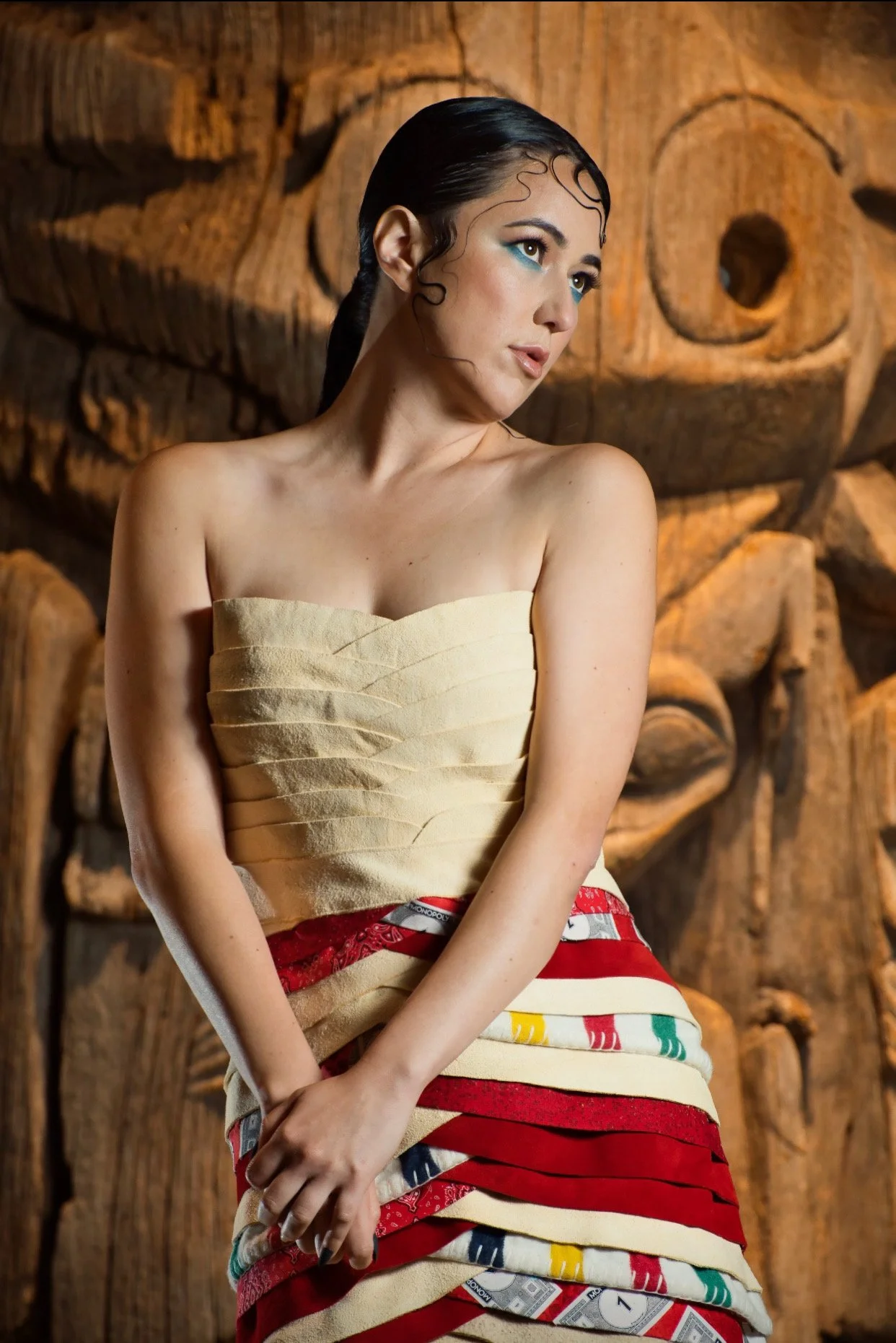
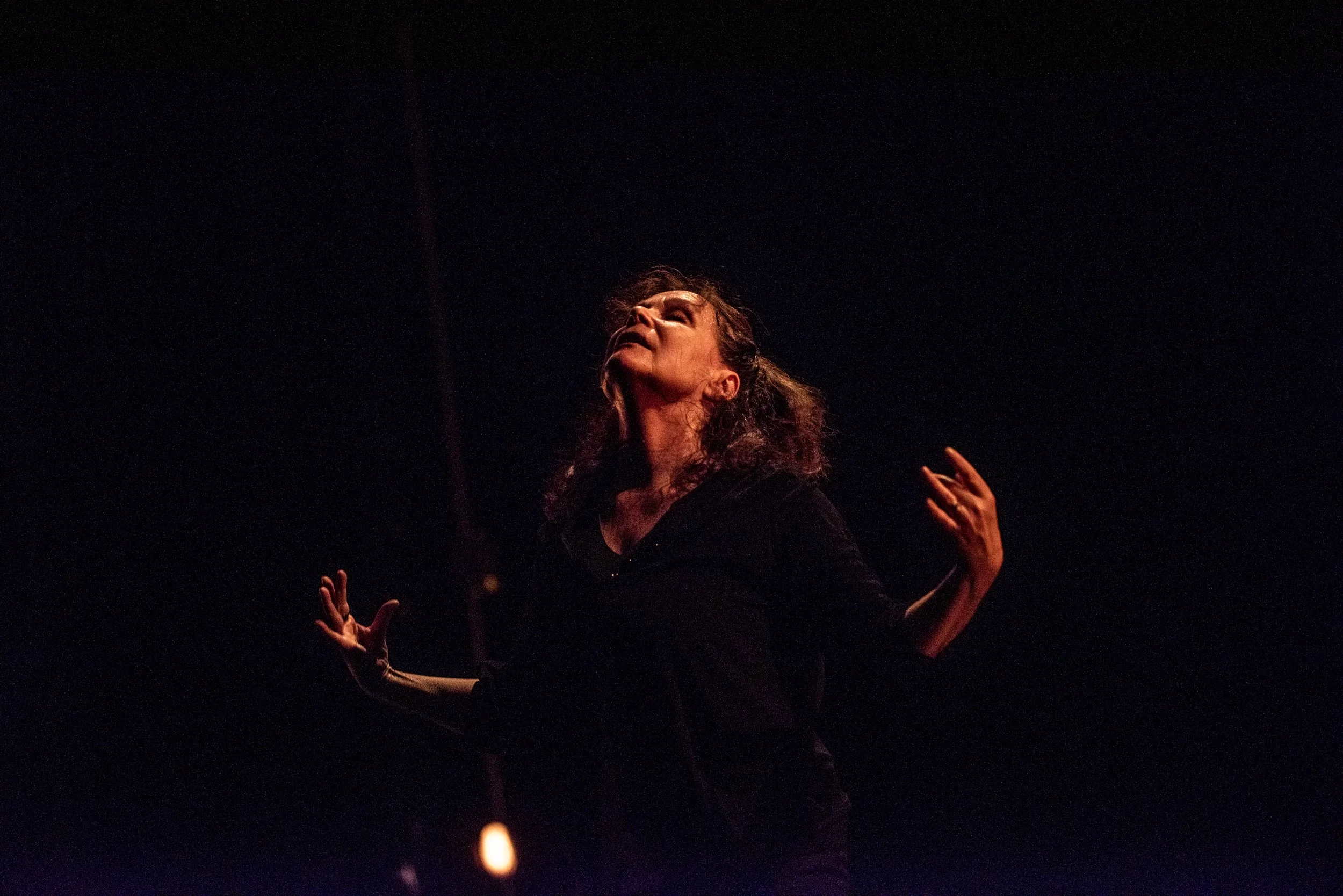

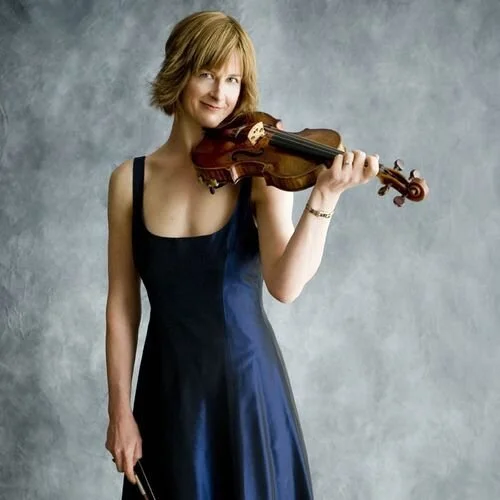
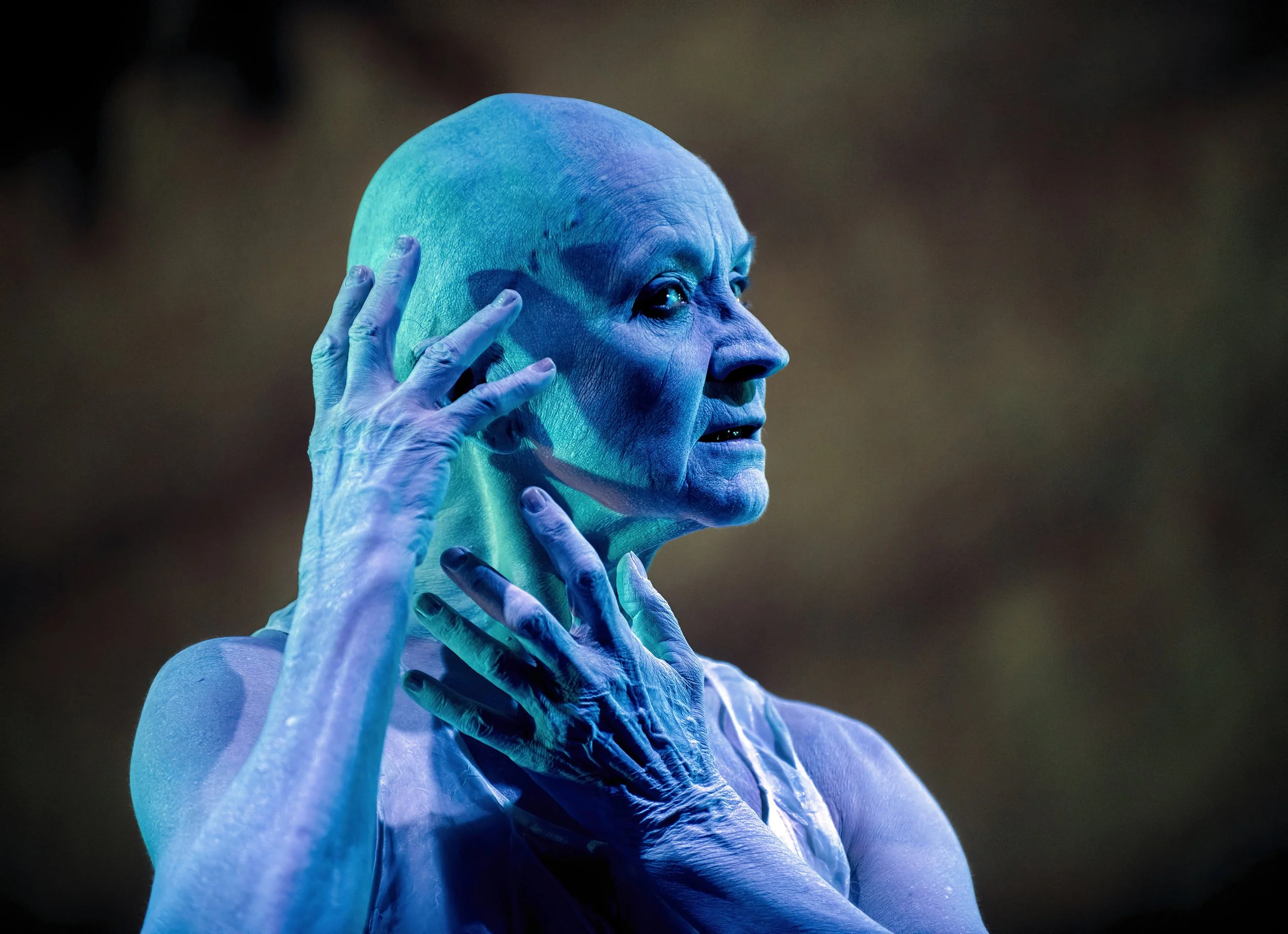
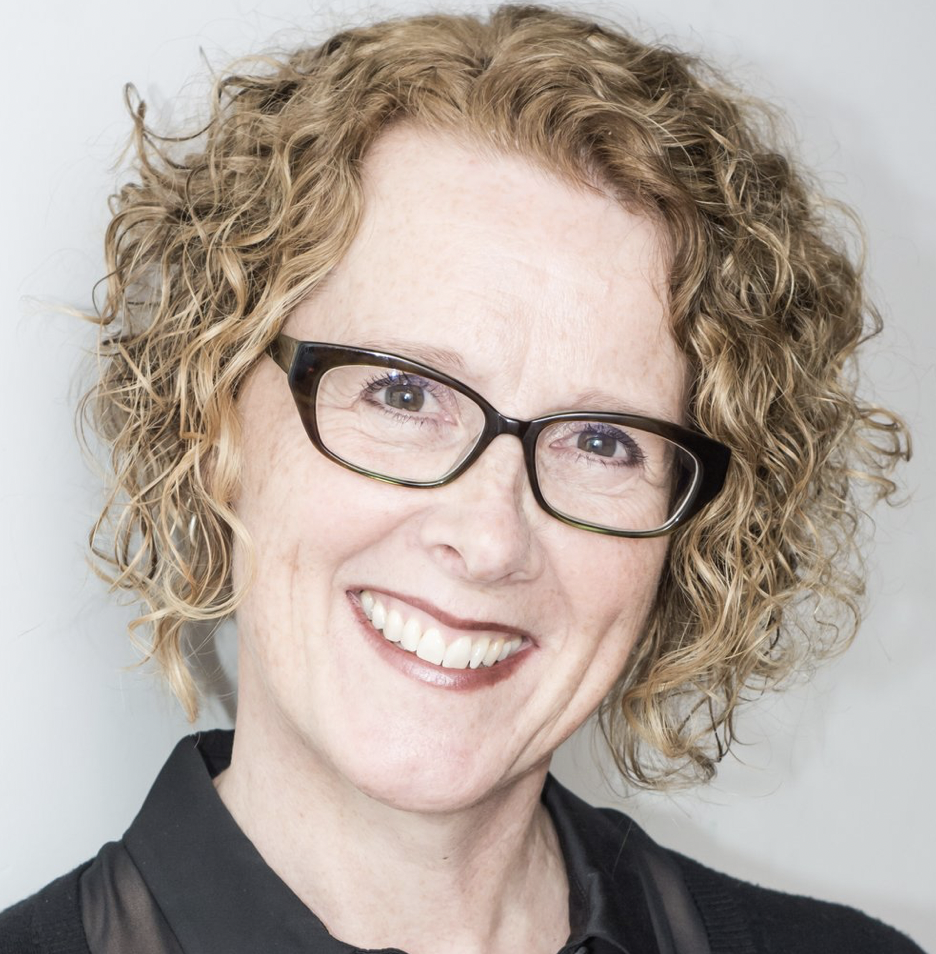


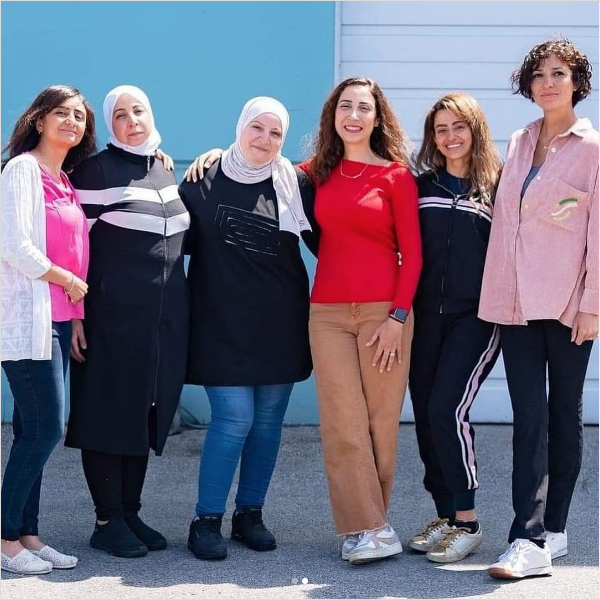
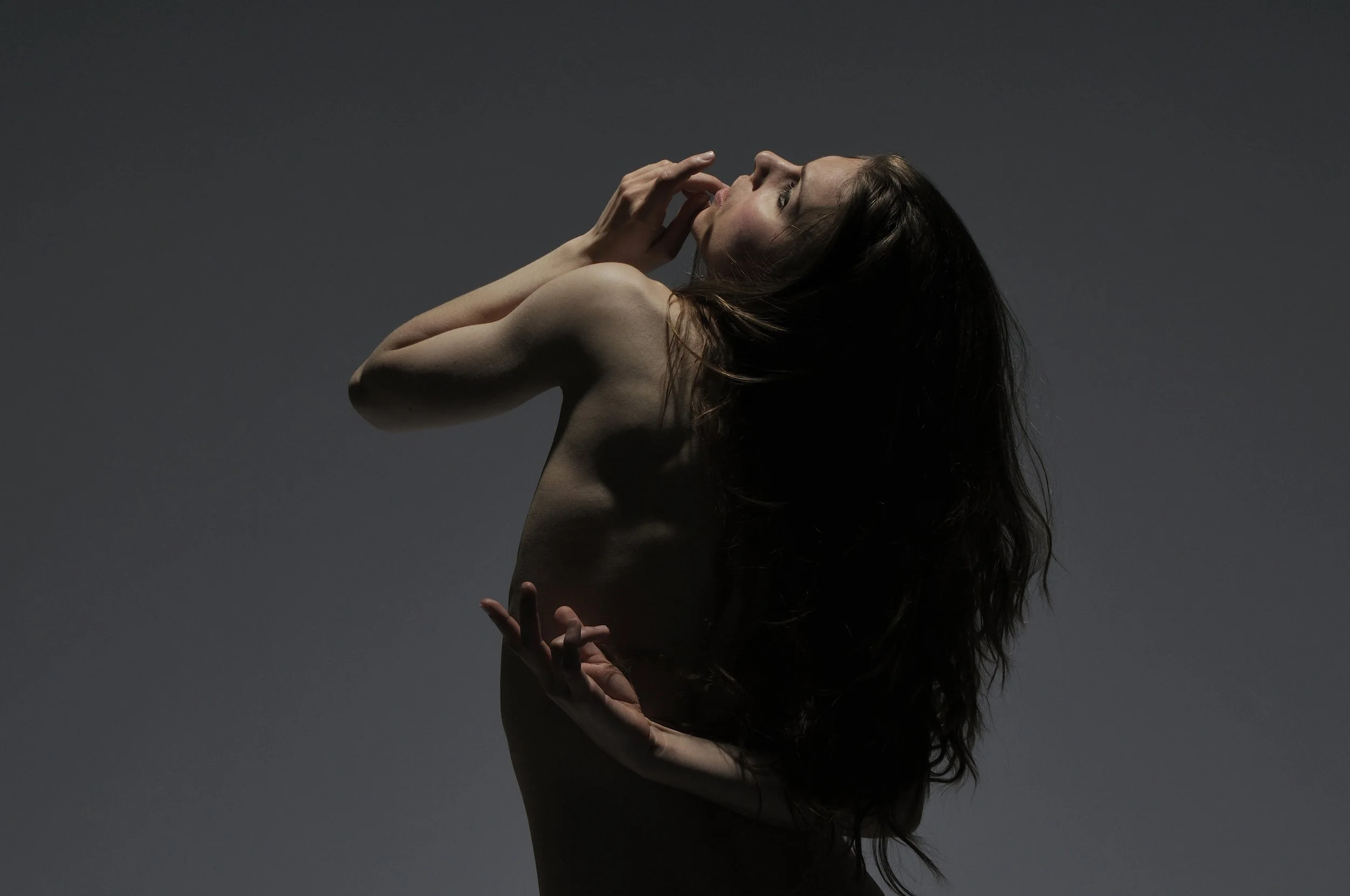

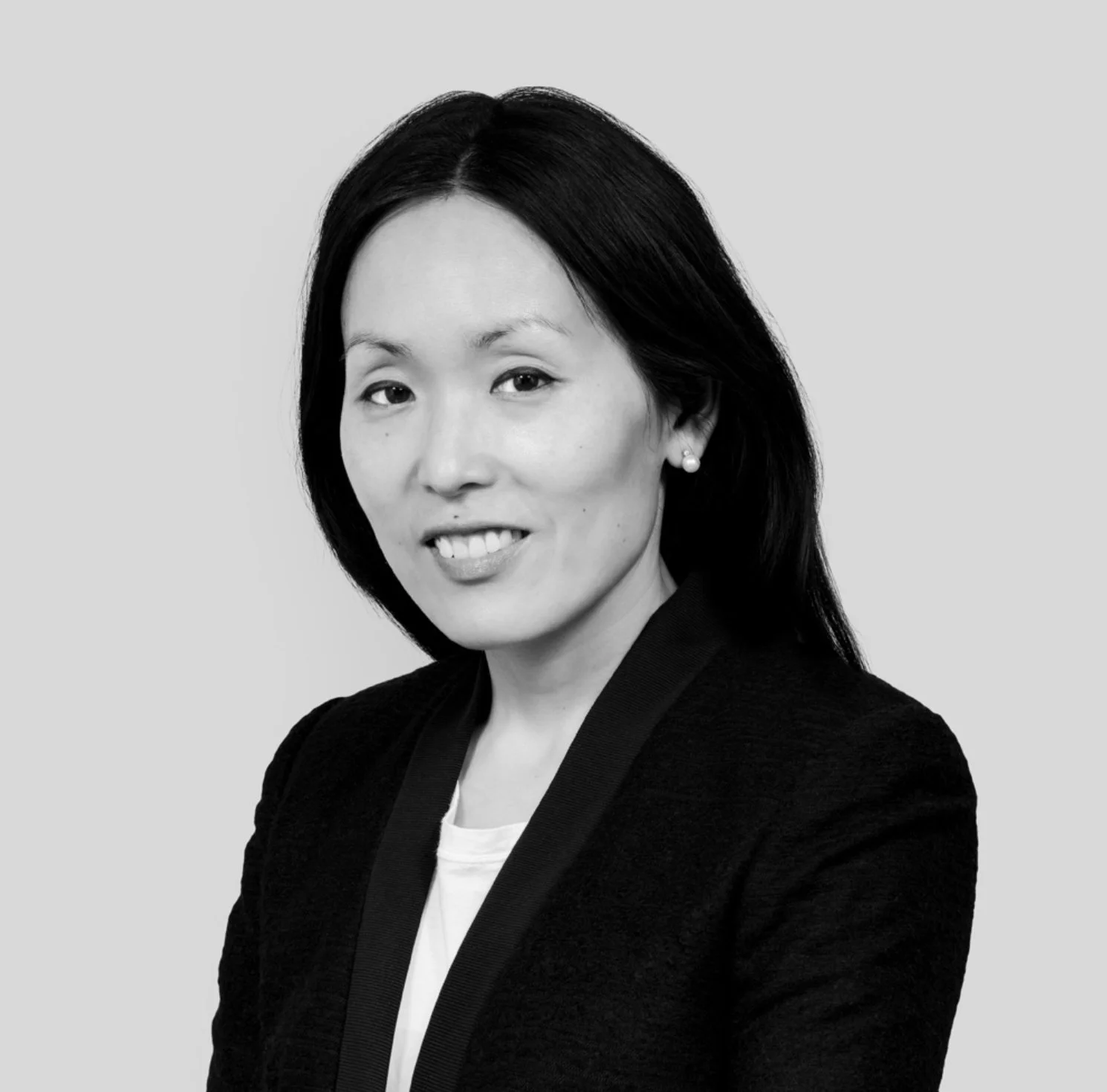

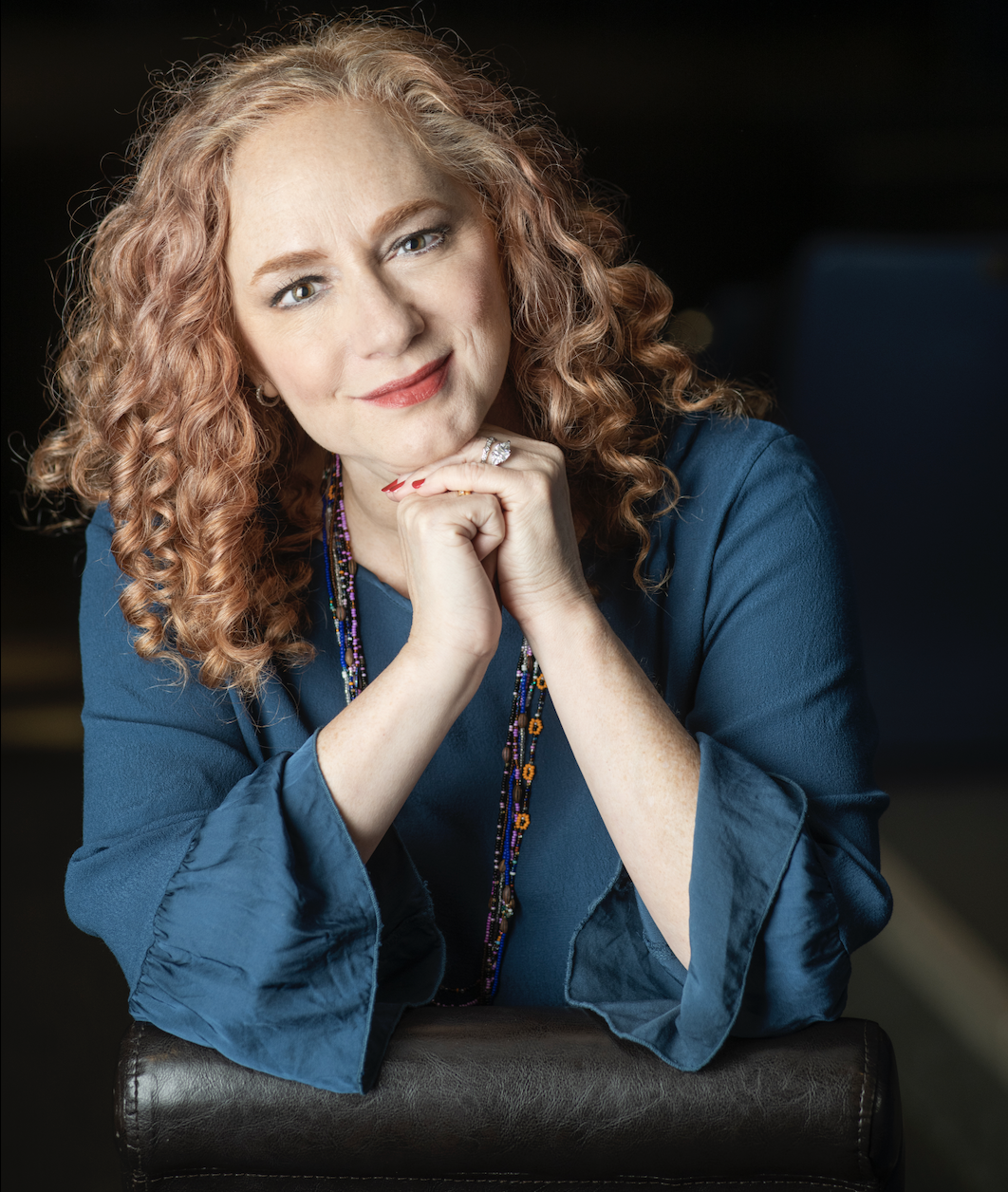



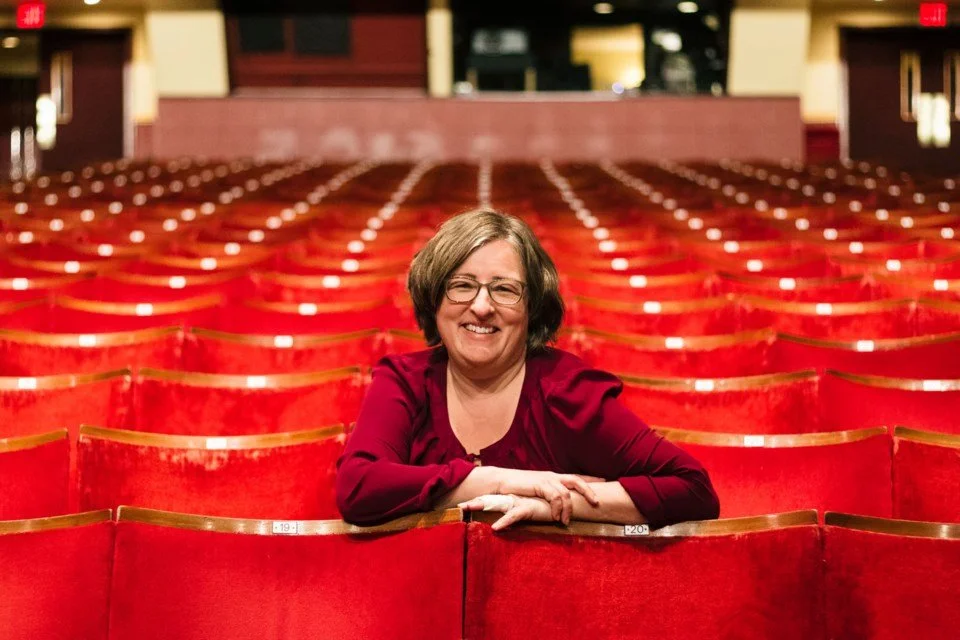
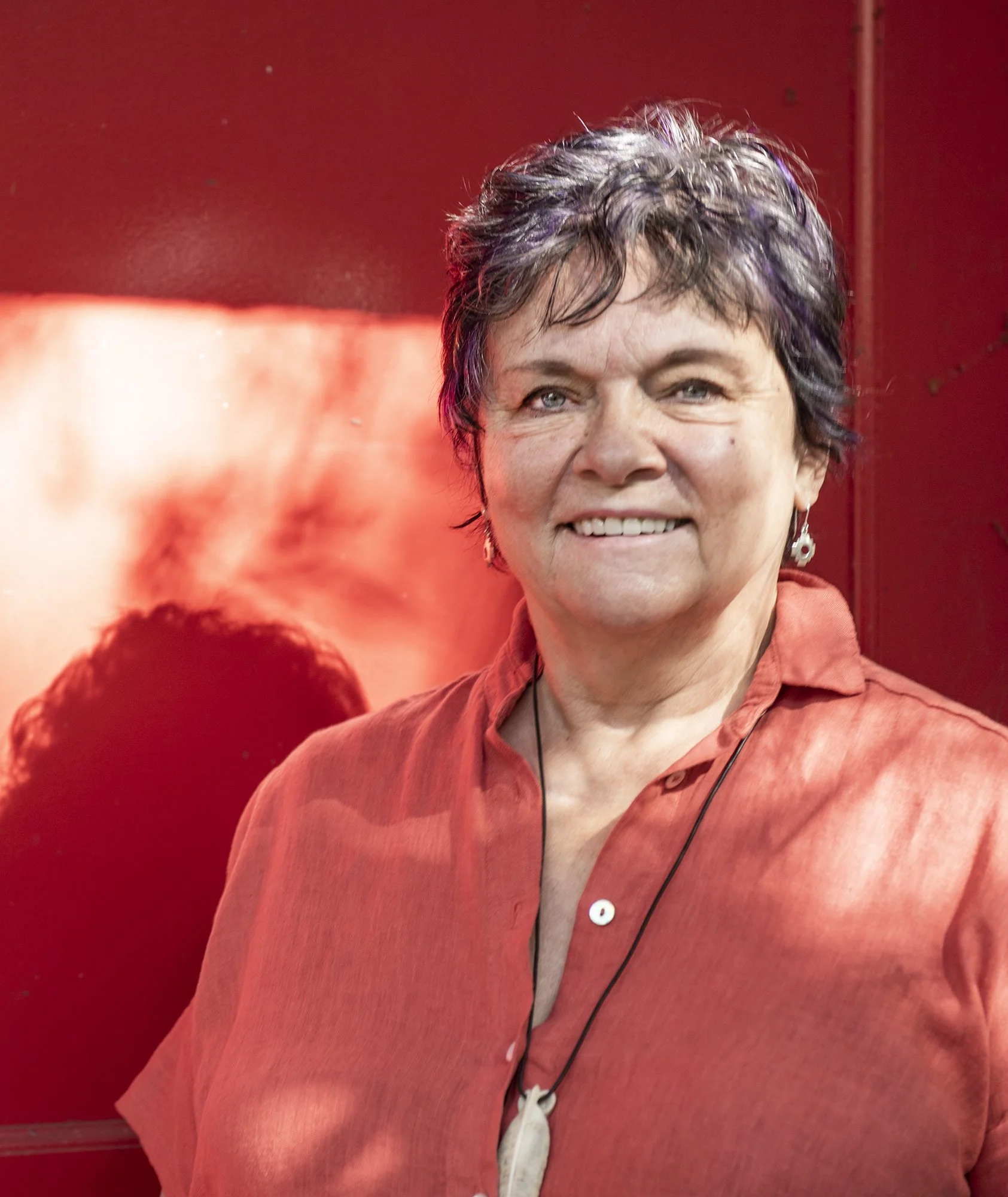
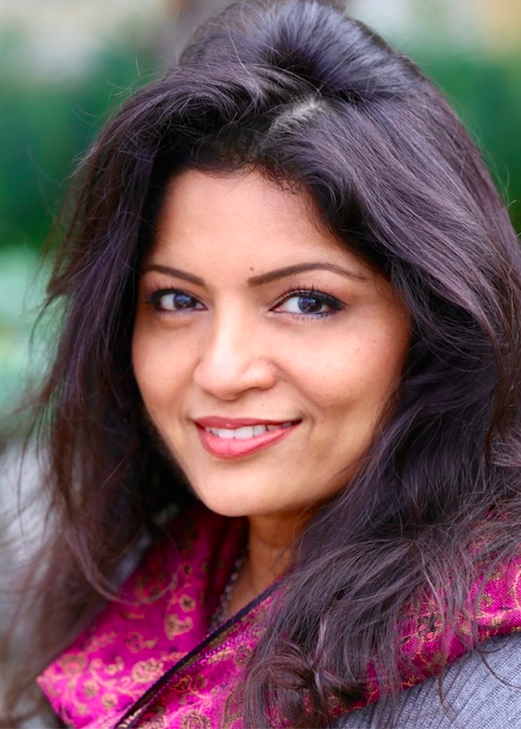



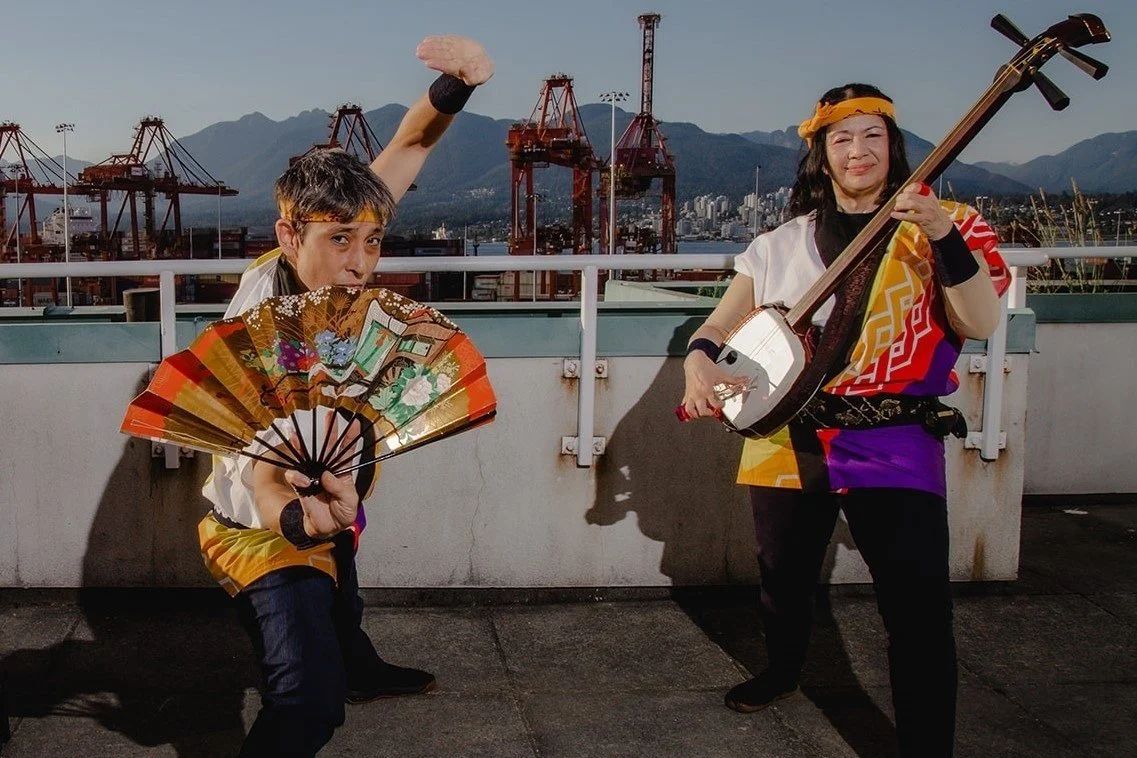

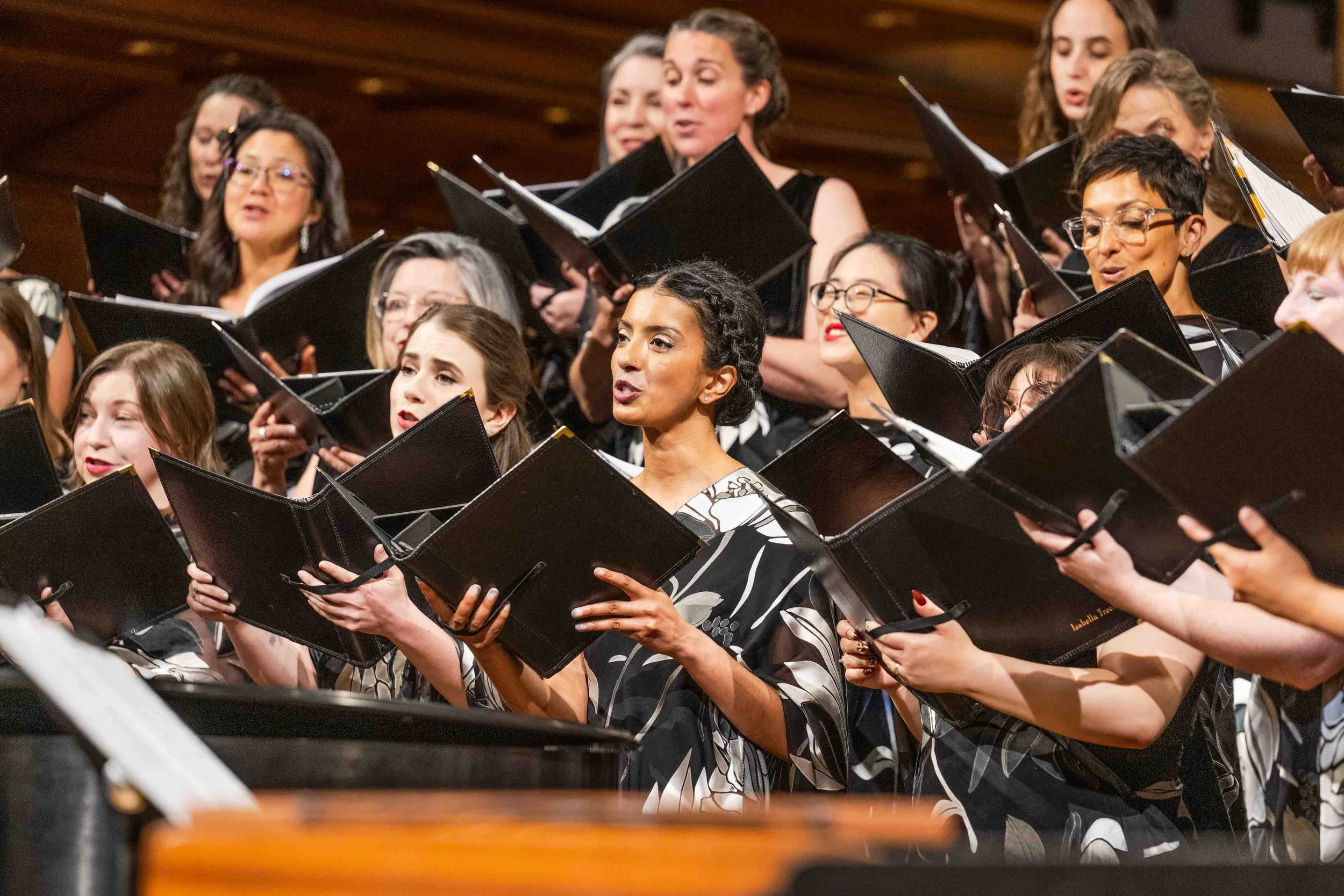
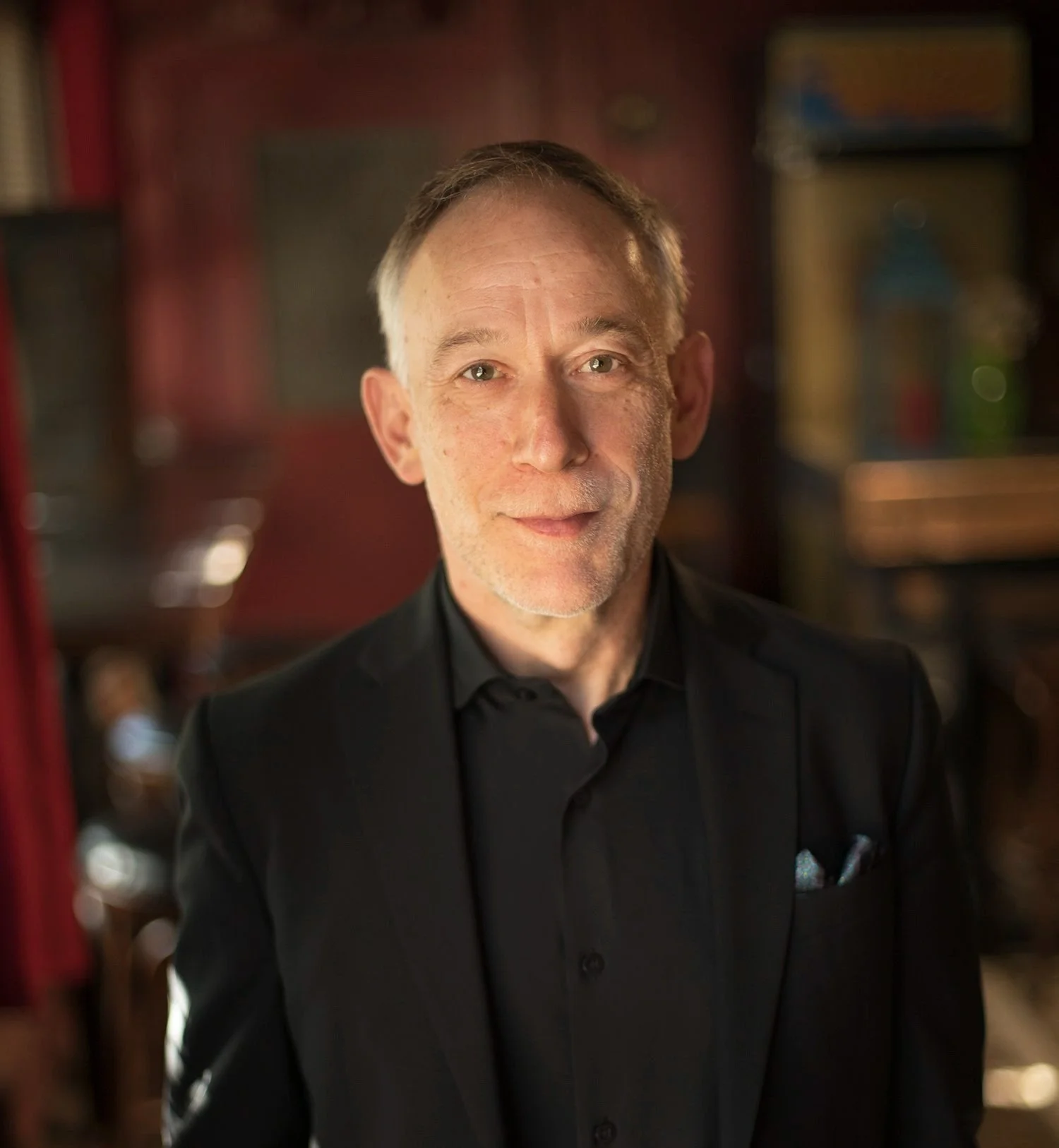
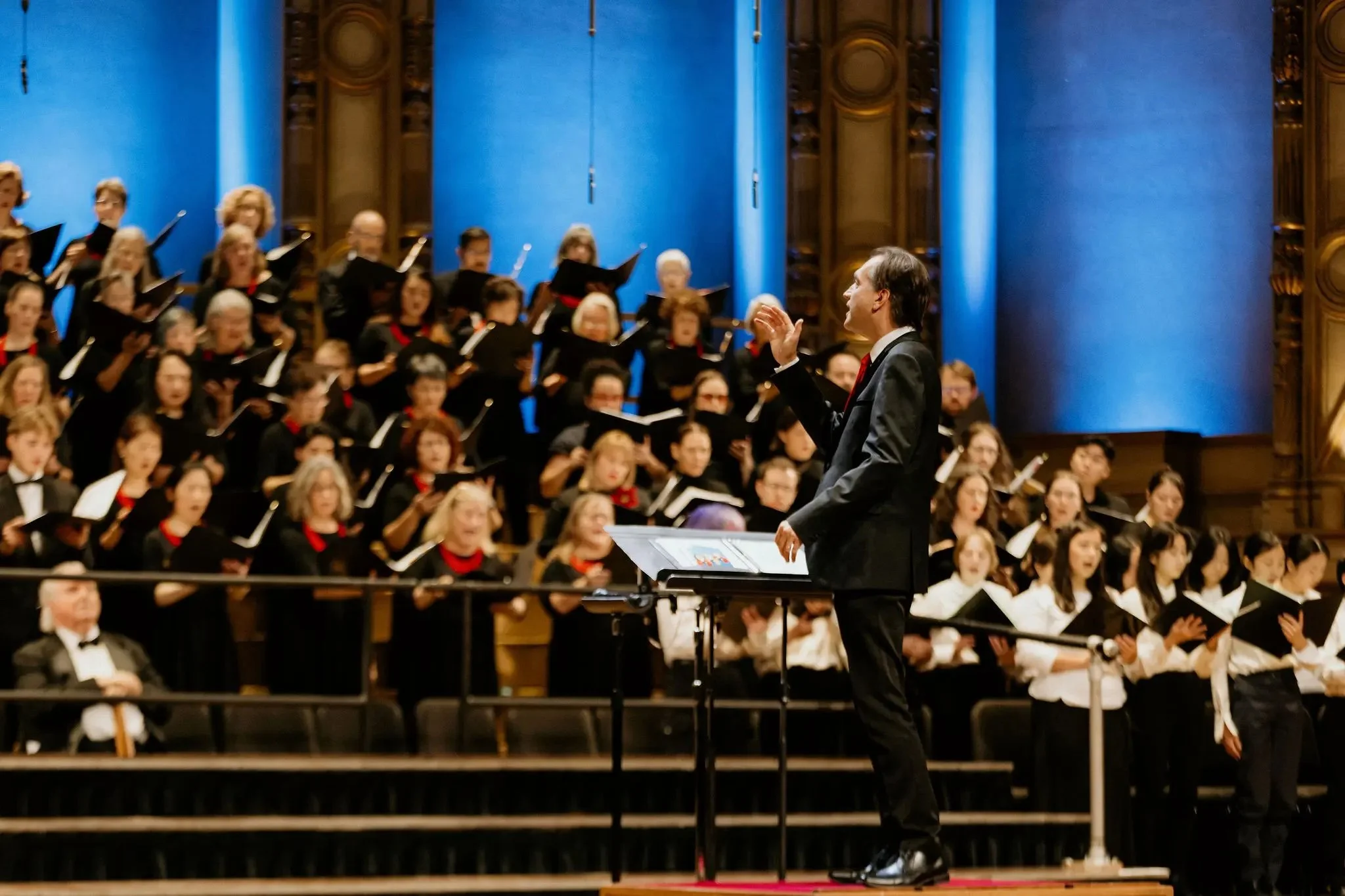


![Theatre review: Complete Works of William Shakespeare (abridged) [revised] [again] takes pleasingly panicked tour of the Bard’s canon](https://images.squarespace-cdn.com/content/v1/5f10a7f0e4041a480cbbf0be/1752776963817-BS2BYYQMLMSGU9OG3E37/Nathan-Kay-and-Craig-Erickson.-Photo-By-Tim-Matheson.jpg)
